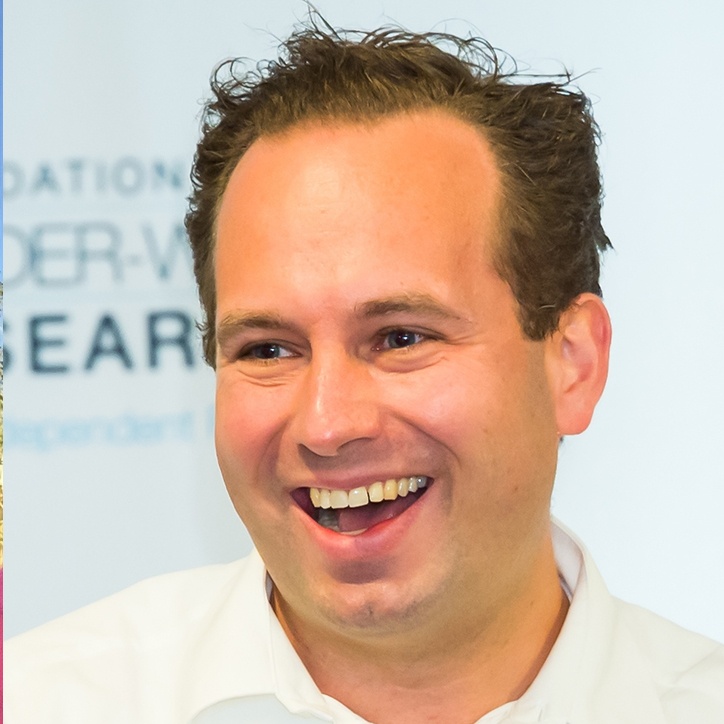Prader-Willi syndrome (PWS) is a genetically and clinically complex disorder. From a molecular standpoint, a major question has been the contribution of individual genes within the Prader-Willi domain on chromosome 15 to the overall clinical phenotype. Many animal models have attempted to address this question, but have not been able to fully recapitulate the human phenotypes. Individuals with point mutations in MAGEL2, one of the genes within the Prader-Willi domain, provide a unique opportunity to understand this gene’s contribution in an actual human context.
We propose to investigate the behavioral, cognitive, and endocrinological phenotypes of ten individuals with point mutations in the MAGEL2 gene. Respective individuals will be evaluated by a team of expert psychologists and geneticists at Texas Children’s Hospital. They will be assessed for cognitive and intellectual deficits, autism spectrum disorder, social responsiveness, other behavioral features, growth hormone deficiency, puberty and sexual development, thyroid function, lipids, hormones related to hunger and eating, bone mineral density, body composition, and scoliosis. Findings will be compared side-by-side to those of individuals with classic Prader-Willi syndrome.
This study will allow to determine the specific manifestations caused by a single gene within the Prader-Willi domain, which will shed light into the overall molecular causes and contributions of individual genes to Prader-Willi syndrome. It will allow narrowing down targets and outcome measures that could be considered in clinical trials for PWS, as they relate to specific genes and pathways.
Research Outcomes: Public Summary
Individuals with Schaaf-Yang syndrome and individuals with Prader-Willi syndrome share remarkable overlap in clinical phenotype. This goes beyond hypotonia, feeding difficulties, and developmental delay/intellectual disability. Clinical overlap also includes hormonal and skeletal phenotypes. The data generated from this FPWR-funded study suggest that MAGEL2 is one of the main genes to account for PWS pathogenesis.
Research Outcomes: Publications
Schaaf-Yang syndrome overview: Report of 78 individuals. McCarthy J, Lupo PJ, Kovar E, Rech M, Bostwick B, Scott D, Kraft K, Roscioli T, Charrow J, Schrier Vergano SA, Lose E, Smiegel R, Lacassie Y, Schaaf CP. American Journal of Medical Genetics Part A. 2018 Oct 10.
Hormonal, metabolic and skeletal phenotype of Schaaf-Yang syndrome: a comparison to Prader-Willi syndrome. McCarthy JM, McCann-Crosby BM, Rech ME, Yin J, Chen CA, Ali MA, Nguyen HN, Miller JL, Schaaf CP. Journal of Medical Genetics. 2018 Mar 1. pii: jmedgenet-2017-105024.
The phenotypic spectrum of Schaaf-Yang syndrome: 18 new affected individuals from 14 families. Fountain MD, Aten E, Cho MT, Juusola J, Walkiewicz MA, Ray JW, Xia F, Yang Y, Graham BH, Bacino CA, Potocki L, van Haeringen A, Ruivenkamp CA, Mancias P, Northrup H, Kukolich MK, Weiss MM, van Ravenswaaij-Arts CM, Mathijssen IB, Levesque S, Meeks N, Rosenfeld JA, Lemke D, Hamosh A, Lewis SK, Race S, Stewart LL, Hay B, Lewis AM, Guerreiro RL, Bras JT, Martins MP, Derksen-Lubsen G, Peeters E, Stumpel C, Stegmann S, Bok LA, Santen GW, Schaaf CP. Genetics in Medicine. 2016 May 19.
Prader-Willi Syndrome and Schaaf-Yang Syndrome: Neurodevelopmental Diseases Intersecting at the MAGEL2 Gene. Fountain MD, Schaaf CP. Diseases 2016, 4(1), 2.
MAGEL2 and Oxytocin-Implications in Prader-Willi Syndrome and Beyond. Fountain MD Jr, Schaaf CP. Biological Psychiatry. 2015 Jul 15;78(2):78-80.
Funded Year:
2016
Awarded to:
Christian Schaaf, MD, PhD
Amount:
$106,941
Institution:
Baylor College of Medicine
Research Outcomes:
Researcher:





